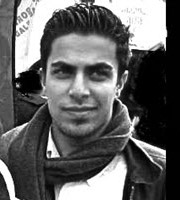
By Hamid Yazdan Panah
The Iranian regime employs many methods in its war against its own people. This includes torture, execution, isolation and terror. For political prisoners, incarcerated in the dungeons of the regime, one of the most difficult challenges they face is the policy of medical negligence. This policy, predicated on unsanitary living conditions, dismal medical care, and agonizing pain and isolation amounts to state sanctioned torture and in some cases death. The issue of medical negligence faced by Iranian prisoners is of growing concern for human rights organizations and activists struggling for change in Iran.
The Iranian regime has a long and documented history of mistreating prisoners, including using torture and extrajudicial killings. However the denial of medical care is a new form of psychological warfare carried out by the regime. By denying prisoners access to adequate medical care, they not only erode the will of the prisoner and slowly kill them, they simultaneously deny any responsibility for the state sanctioned violence and harm that is inflicted upon them. The denial of medical care for prisoners is illegal under international law, and is in contravention to the International Covenant on Civil and Political Rights to which Iran is a party.
This new form of torture not only destroys the bodies of prisoners, it terrorizes their families and delivers a very clear message to other prisoners that their lives are in the hands of authorities, even if they are not facing a life sentence. It redefines the form of torture inflicted upon a prisoner’s body as occurring not only through physical violence, but in complete control of their health, sanity, and ultimately their lives. Something which can have devastating results on the psyche of a prisoner and their will to resist.
This past month there has been growing concern over the fate of a number of political prisoners incarcerated in Iran. Two in particular have gained international attention as a result of their medical conditions. Omid Kokabee, an Iranian physicist and dissident, recently underwent a procedure to have his kidney removed. The surgery was required following five years of imprisonment, in which he continually suffered health complications based on unsanitary living conditions.
It is important to note that Kokabee, like many political prisoners, has continually been under pressure by the regime to admit to provide confessions and sign statements admitting to various crimes. His steadfast refusal to comply with this request, and the subsequent mistreatment are not a coincidence.
Hossein Ronaghi, a 30 year old blogger and dissident, is also in need of urgent medical care and is reportedly in critical condition following a hunger strike to protest his lack of medical care. Ronaghi is currently serving a 13 year sentence in Evin Prison for writing blogs critical of the regime. Ronaghi’s family has continually called for the release of their son from prison, maintaining that his imprisonment is illegal and arguing that a continuation of these conditions amount to a death sentence.
These are just two cases, involving internationally recognized prisoners of conscience whose cases continue to garner attention and publicity, yet the regime continues its inhuman policies of torture and death. Dissidents whose cases remain unpublicized face an even greater threat of isolation and lack of medical, while the regime is allowed to escape its obligations under international law. It appears that these prisoners are fated to fight their battles alone, while the regime in Iran signs international deals and projects an image of modernity and reform.
Hamid Yazdan Panah is an Iranian-American human rights activist and attorney focused on immigration and asylum in the San Francisco Bay Area.


